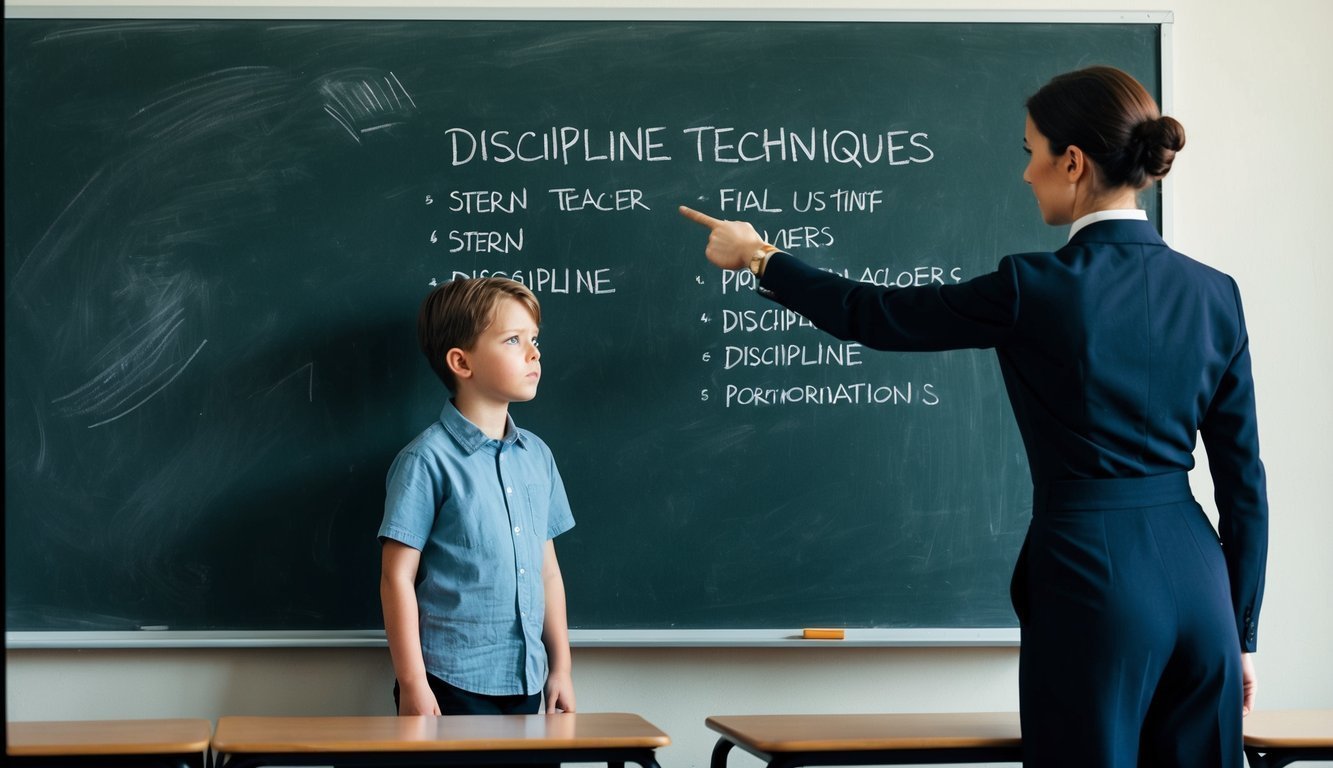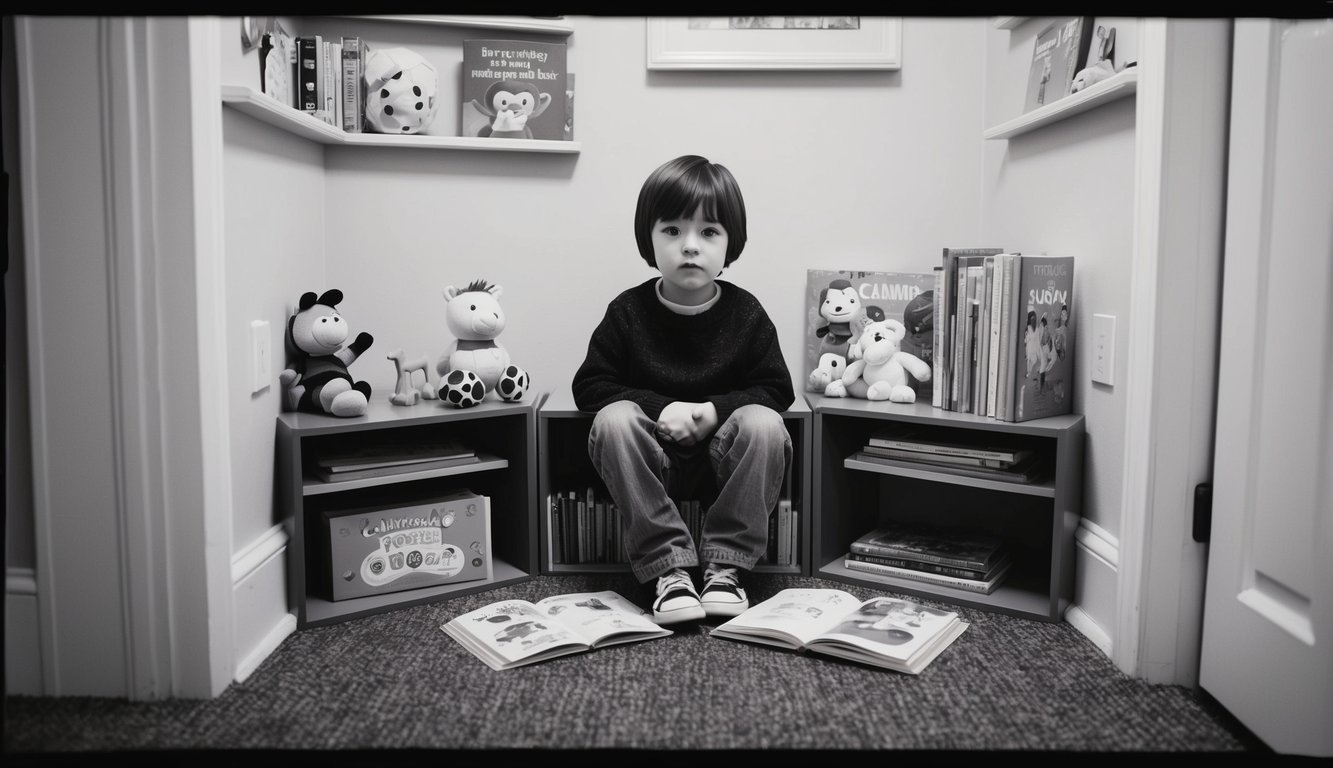PsychNewsDaily Publishers
100 Summit Drive
Burlington, MA, 01803
Telephone: (320) 349-2484
PsychNewsDaily Publishers
100 Summit Drive
Burlington, MA, 01803
Telephone: (320) 349-2484
Child discipline involves guiding behavior through positive reinforcement and clear boundaries, emphasizing teaching over punishment to promote healthy emotional and social development in children.

Child discipline encompasses methods aimed at directing behavior and promoting healthy development. Successful techniques support positive growth while taking into account a child’s unique needs and their stage of development.
Effective discipline prioritizes teaching over punishment, focusing on helping children develop self-control and make wise choices.
Key principles include:
Effective discipline steers clear of physical punishment, which can damage child-parent relationships and result in negative consequences.
Alternatively, positive discipline techniques, such as time-outs, logical consequences, and reward systems, can be more advantageous. These methods encourage children to think about their actions and improve their future choices.
The methods of discipline employed significantly affect a child’s emotional, social, and cognitive growth. Positive approaches facilitate healthy development and build self-esteem.
Benefits of effective discipline include:
In contrast, harsh or inconsistent discipline can lead to:
Discipline that respects a child’s autonomy and emphasizes teaching rather than punishment is more likely to result in positive developmental outcomes. It aids children in internalizing values and cultivating strong moral reasoning abilities.

Successful discipline strategies support children in developing self-control and learning appropriate behaviors. These methods emphasize clarifying expectations, encouraging positive actions, and constructively addressing challenges.
Clear expectations are fundamental to effective discipline. Parents should articulate rules and boundaries using age-appropriate language. Consequences for misbehavior must be consistent and suitable.
Visual aids, such as charts or calendars, can reinforce expectations for younger children. Engaging older kids in drafting family rules can enhance their acceptance.
Create a routine to regularly discuss expectations, aiding children in comprehending what is required and minimizing confusion or disputes.
Focus on logical consequences when setting outcomes. For instance, if a child neglects to tidy their room, they may lose screen time privileges until the task is accomplished.
Positive reinforcement is an effective means of shaping behavior. Encourage specific actions instead of general traits to foster habitual good behavior.
Examples of effective praise include:
Demonstrate self-discipline by modeling the behaviors you wish to see. Exhibit problem-solving skills and emotional regulation in daily life.
Encourage children to establish personal goals and monitor their progress. This practice nurtures a sense of achievement and enhances intrinsic motivation.
In instances of behavioral issues, maintain calmness and consistency. Steer clear of power struggles by offering choices within reasonable boundaries.
During tantrums, utilize time-ins instead of time-outs. Stay close to provide support and assist the child in regulating their emotions.
Implement a token system for older children. Reward positive actions with tokens that can be exchanged for treats or privileges.
Identify underlying causes of misbehavior. Consider aspects such as hunger, tiredness, or stress that might contribute to difficult behavior.
Employ natural consequences when it is safe and appropriate. For example, if a child refuses to wear a coat, they might feel cold outside.

Non-punitive discipline emphasizes guiding children toward appropriate behavior through positive support and encouragement. These methods aim to enhance a child’s emotional growth and strengthen the parent-child bond.
Positive parenting focuses on reinforcing good behavior rather than punishing negative actions. Parents can utilize praise, rewards, and encouragement to inspire children to make positive choices.
Effective reinforcement strategies include:
Consistency is crucial when applying positive reinforcement. Parents should promptly acknowledge good behavior and communicate expectations clearly.
Active listening and empathy are vital to positive parenting. By understanding a child’s viewpoint, parents can address underlying needs and emotions that may contribute to misbehavior.
Time-in serves as an alternative to traditional time-out, focusing on connection over isolation. During a time-in, parents stay with the child to support them in emotion regulation and problem-solving.
Other non-punitive alternatives include:
These methods assist children in developing emotional regulation skills and learning from their mistakes. Parents guide children through challenging situations, teaching them to manage intense feelings and make better choices in the future.

Discipline techniques can profoundly impact a child’s growth. The approaches adopted by parents and caregivers shape emotional responses, behavioral patterns, and long-term psychological effects in children.
Discipline strategies have a direct effect on a child’s emotional health and behavioral responses. Harsh disciplinary measures can result in reduced self-esteem and increased mental health issues. Children who frequently experience physical punishment often exhibit heightened aggression and externalizing behaviors.
Consistent, fair discipline fosters healthy emotional development, facilitating self-regulation skills and promoting a positive self-image. Children who receive supportive discipline are more likely to develop strong problem-solving abilities and maintain healthy relationships with peers and adults.
Parental warmth, coupled with clear boundaries, leads to secure attachment. This balance allows children to internalize values and cultivate intrinsic motivation for appropriate behavior.
Effective discipline emphasizes teaching over punishment. Positive reinforcement of desirable behaviors encourages children to repeat them. Time-outs, when appropriately utilized, can effectively address misbehavior without resorting to physical punishment.
Clearly communicating expectations allows children to understand boundaries better. Explaining consequences for actions reinforces the development of cause-and-effect reasoning. Involving children in discussions around problem-solving fosters critical thinking and accountability.
It is essential to use age-appropriate discipline methods. What is effective for a toddler may not be suitable for a teenager. Adjusting strategies as children mature ensures continued effectiveness and sustains a positive parent-child relationship.

Successful parenting requires access to support systems and educational resources. Positive discipline frameworks also offer valuable guidance for parents aiming to foster healthy child development.
Parenting support groups provide valuable opportunities for caregivers to exchange experiences and learn from each other. These networks create a platform for discussing challenges and sharing practical parenting advice.
Professional parenting education programs equip parents with essential child-rearing skills. Common topics include establishing realistic expectations, enhancing problem-solving abilities, and employing effective discipline strategies.
Online communities and social media groups enable parents to connect virtually, facilitating peer support and the sharing of advice on various parenting concerns.
Parenting workshops and seminars led by child development specialists provide in-depth guidance on specific areas. These events can assist parents in refining their parenting style and discovering new techniques.
The Incredible Years is a renowned program that promotes positive parenting methods. It centers on strengthening the parent-child relationship and effectively managing challenging behaviors.
Positive Discipline is another well-established approach. This framework highlights mutual respect, encouragement, and the development of problem-solving skills in children.
Parent-Child Interaction Therapy (PCIT) merges behavior therapy with play to enhance family dynamics. It instructs parents to utilize positive language and reinforce desirable actions.
Triple P (Positive Parenting Program) offers a versatile system of interventions, aiding parents in developing skills to manage their children’s behavior and preventing issues from arising.